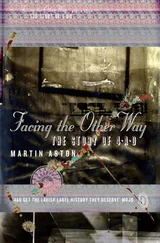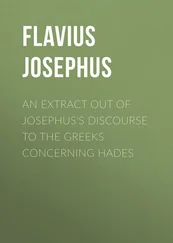While Selena spoke joyfully of the prospect of sailing on the wide, blue, Henryless Ionian, I reflected on what we had learnt from Leonidas and Camilla. Could murder still be thought of as even a remote possibility? The timing was very fine: the dispute between Constantine Demetriou and Rupert Galloway had reached its climax at the moment when the boats came into view from the balcony; assuming that this was when they passed Chiswick Steps, we had calculated that four minutes would have been available before the moment at which Deirdre was known to have fallen; but this was now reduced by the time taken for the poet to announce his departure, for Lucinda to be sent to call her mother, and for Dorothea herself to come downstairs from the roof. Both accounts, moreover, had given the impression that all the members of the family were present in the drawing-room — or at least on the balcony or in the adjoining kitchen — when Dorothea returned to it. The only person whose presence there had not been expressly mentioned was—
“Ah, Mr. Tancred,” said Selena, anticipating my words, though in a tone more cordial than any I had thought to employ. Turning my head, I saw approaching our table the substantial figure of the Remington-Fiske family solicitor. He returned Selena’s greeting with equal warmth.
“Ah, Miss Jardine — this is an unexpected pleasure. May I join you? Unless,” he added, observing how many members of 62 New Square were gathered round our table, “I am intruding on a Chambers meeting?”
“Nothing like that,” said Selena. “A purely informal gathering. Do join us — you know Professor Tamar, don’t you?”
“Ah yes, I do, of course — how are you, Professor Tamar?” said the solicitor, disguising with a rather excessive enthusiasm for our present meeting his inability to recall our last. I thought it kind, when he had settled himself beside Selena, to remind him that it had been on the occasion of the proceedings under the Variation of Trusts Act, when I had chanced to be visiting Chambers.
“Ah yes, of course.” The syllables rolled mellow and rounded from his tongue. “How long ago it seems — extraordinary to think it was only in February.”
“I was sorry to read,” I said, “of the tragic sequel.”
“The death of poor Miss Robinson? Ah yes, a very sad business. A dreadful ordeal for Miss Galloway, of course — indeed, for the whole family.”
“I believe,” I said, “that you yourself were present when the accident occurred? It seems fortunate — if anything can be so described in such a connection — that the family should have been able to turn to you immediately for your advice and support.”
“I did what I could, naturally. I can hardly claim, however, that such events are within my normal professional experience.” His enthusiasm for me seemed to be cooling.
“Of course not. Nonetheless, one cannot doubt that your presence at such a time would have been of the greatest assistance. In dealing with the police, for example — a lay person without the benefit of professional advice might say all manner of things to the police which prudent reflection would have left unsaid.”
“There was no question of that, Professor Tamar. None of the family had any reason to be anything but entirely candid with the police.”
“Oh,” I said rather quickly, for his tone suggested a desire to treat the subject as closed, “I did not intend to suggest that they had. But the fact that you yourself were a witness—”
“Do let us talk,” said Selena “of something more cheerful.”
My readers will be surprised, perhaps, at this intervention in my questioning of a witness so providentially met with and so material to the subject-matter of my investigation — an investigation, as my readers will recall, undertaken at the particular request of the members of 62 New Square, who might thus have been expected to support me in my inquiries. But no such matter: they had observed my questioning of Tancred with every sign of increasing apprehension; and Selena, as I have said, now chose to change the subject.
Success at the Bar, my readers should further recall, is seldom achieved by offending solicitors.
The conversation consisted thereafter of innocuous legal gossip. It was not until Tancred’s departure — an appointment at his offices in Lincoln’s Inn Fields prevented him from lingering — that the subject of my inquiry was touched on again.
“By the way, Miss Larwood,” he said as he rose to leave us, “talking of the Remington-Fiske application, I don’t suppose — I believe I did mention to your Clerk some weeks ago that the probate seemed to have gone astray somehow — I don’t suppose you happened to come across it at all?”
Julia at this showed signs of agitation. She turned the color of a tomato with something on its conscience, and answered with quivering over-emphasis: “No, I haven’t, Mr. Tancred. I don’t have the probate. I never had the probate. There was never any reason for me to have the probate. So there’s no possibility of my now coming across the probate.”
“I really think,” said Selena, “that that must be right, Mr. Tancred. You wouldn’t have put it with Julia’s papers, would you? You’d have lodged it in Court. And when the hearing was over, the Judge’s Clerk would have handed it back to you.”
“Yes,” said the solicitor doubtfully. “Yes, that would be the usual thing, certainly. But I remembered that Miss Larwood had been kind enough to accept instructions at very short notice, and might not have had a complete set of papers. In which case, it occurred to me, the Judge might have handed her the probate for her assistance in the course of the hearing.”
“He didn’t,” said Julia. “I should certainly have remembered so signal a favor. It must have been lost in your office, Mr. Tancred — someone took it out, I expect, to check the investment powers or something of that nature, and forgot to put it back again.”
“That’s really most unlikely, you know, Miss Larwood. We wouldn’t keep an original probate with our ordinary working papers, you see. We would have a copy of the Will on our current file — the final draft, probably, or a copy taken from it — and that’s what we would use for ordinary reference purposes. We would keep the original probate safely in a strongbox, and only take it out when absolutely necessary.” He spoke benignly and a little complacently; for he perceived, I suppose, that Julia would not have thought of such a system, but would have been careful to keep any original document in a place where it could easily be referred to, and spilt coffee over, and mixed up with other papers having nothing to do with it.
“I know what must have happened,” said Selena with triumph, as if hitting on an explanation which when once thought of was manifestly true. “If the probate was with the papers when you left them with the Judge, Mr. Tancred, and you haven’t seen it since, the Judge must have it. He was looking at the affidavits, I dare say, and he put the probate on one side and misplaced it — used it to mark his place in a Law Report, I expect, and then forgot about it. I think your best course, Mr. Tancred, would be to have a tactful word with his Clerk.”
“Well, you may be right, Miss Jardine — I’ll do as you suggest, certainly. But if Miss Larwood would be so kind as to have another look for it…” With a tolerant smile at Julia to show he meant no unkindness, the solicitor took his leave of us.
“It’s an extraordinary thing,” said Julia, “how every solicitor who loses a piece of paper anywhere in the area of Greater London always claims that it’s my fault. It seems to be an official policy of the Law Society.”
“The notion is certainly rather widespread,” said Ragwort, “that if any document goes missing in a case in which you have been concerned it’s probably somewhere on your desk.”
Читать дальше












